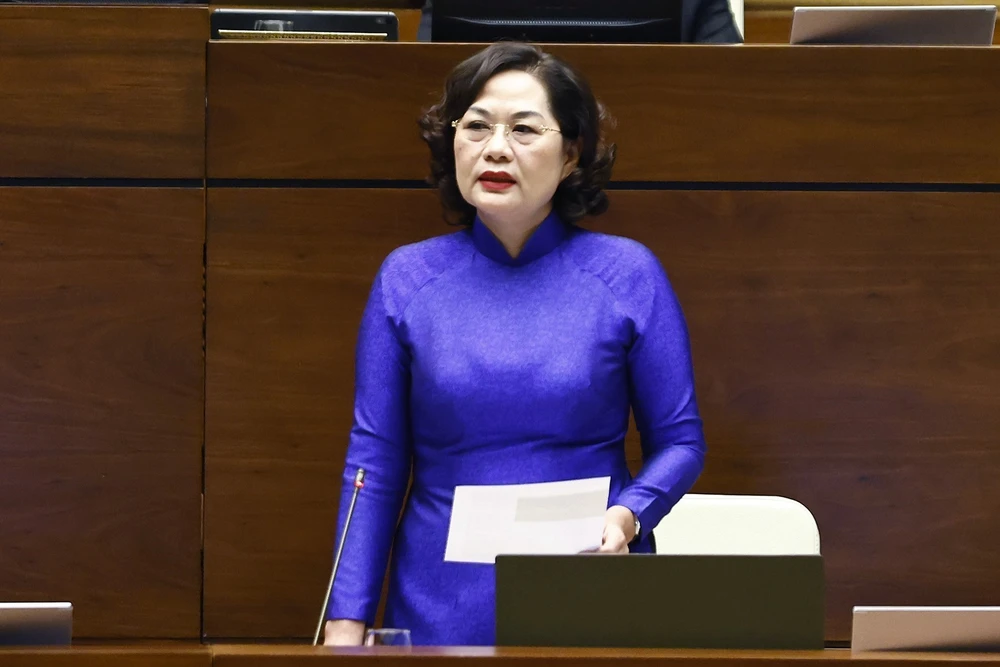HCMC – Vietnam’s central bank has defended its decision to sell gold without initiating a buyback of the yellow metal to stabilize the domestic gold market.
Speaking at a Q&A session of the 15th National Assembly (NA)’s ongoing eighth sitting on November 11, State Bank of Vietnam (SBV) Governor Nguyen Thi Hong said selling gold without a repurchase option was intended to increase market supply and narrow the gap between domestic and international gold prices.
There are 22 credit institutions and 16 gold businesses authorized to conduct gold transactions, she noted.
NA deputies raised concerns over the absence of a gold buying mechanism, noting that citizens lack a secure outlet for selling gold. They also questioned the policy of maintaining the zero interest rate on bank deposits in U.S. dollar.
The central bank governor said that it is up to the above banks and gold businesses to decide whether to buy gold from individuals.
To further support the gold market, the SBV has conducted nine gold auctions and facilitated direct sales through four state-run banks: Agribank, Vietcombank, VietinBank, and BIDV.
Hong noted that despite the constraints of international gold prices and limited domestic gold production, proactive interventions can help to stabilize the gold market.
Addressing the zero interest rate policy on dollar deposits, she emphasized the central bank’s role in stabilizing the exchange rate and mitigating dollarization in the economy.
She said offering interest on dollar deposits might encourage citizens to shift their savings from the domestic currency to foreign currency, potentially disrupting financial stability.
The increase in Vietnam’s foreign exchange reserves since 2016 has played a crucial role in stabilizing the foreign exchange market, according to the governor. This policy has been driven by the need to ensure liquidity safety, as foreign exchange reserves serve as a financial safety net during economic downturns.
While the central bank aims to maximize returns on its foreign exchange investments, safety and liquidity remain the top priorities, she added.









